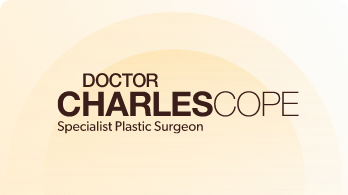When it comes to planning an abdominoplasty procedure, recovery should not be an afterthought. The recovery process is a vital part of any surgical procedure, and patients should understand what this involves before making their decision. This is because having the right information and guidance can make a big difference in your surgery and recovery experience. Here, we will explore abdominoplasty recovery tips recommended by Sydney Specialist Plastic Surgeon Dr Charles Cope.
Make yourself informed
The first thing you’ll need before you embark on your abdominoplasty recovery journey is, simply, information. Having a solid understanding of the procedure you are undergoing will better enable you to prepare for recovery. This includes information about what the surgery involves, possible benefits, aftercare, and risks.
Abdominoplasty usually involves a horizontal incision across the abdomen. However, there are different techniques for this procedure, and the method Dr Cope uses depends on the patient’s goals. For example, a patient with only a small amount of excess tissue on the abdomen may choose to undergo a ‘mini’ abdominoplasty. This involves a smaller incision compared to the traditional technique. On the other hand, a patient with a large amount of excess skin may be more suitable for an extended abdominoplasty or fleur de lis, both of which are more extensive and create longer incisions.
Therefore, being informed doesn’t simply mean knowing about abdominoplasty surgery in general. It also means discussing your desired procedure with a surgeon like Dr Cope to find out the details of what your specific procedure would involve.
Be as prepared as possible
Preparation can have a large impact on a patient’s recovery. A lack of preparedness can add a layer of worry and stress, which is the last thing you want to deal with when recovering from an extensive surgery.
Here are a couple of tips that can help you feel prepared for your abdominoplasty recovery:
- Have a support person – Having a friend or family member with you during the initial recovery can be a great help, especially when it comes to house chores and caring for children. This person can also drive you home from the hospital after your procedure.
- Give yourself time – Taking enough recovery time often means stepping away from work for a few weeks. The number of weeks may depend on the type of work you do, so it’s important to discuss this with Dr Cope before your procedure. You should also take time away from your exercise routine and any other strenuous activities.
- Stay generally healthy – Taking care of your general health can also help your body prepare for abdominoplasty recovery. This means getting enough sleep, eating a healthy and balanced diet, and staying active.
Additionally, it’s important to be mentally prepared. Mental preparedness is just as important as physical, because it can affect how you feel and perceive the surgery experience. This ties into the idea of being informed. If you are informed about what to expect, the pros and cons, etc., then you can mentally prepare yourself for the possible outcomes. Try to have realistic expectations, and discuss these with Dr Cope, along with other aspects such as risks, wound care, and scarring.
Avoid things that can impede the healing process
Let’s discuss some of the more practical aspects of recovery. Patients need to be aware of things to avoid in order to aid the body’s natural healing. Certain activities and habits can make it more difficult for the body to heal and may increase the risk of complications.
During abdominoplasty recovery, patients should avoid things such as:
- Smoking – Smoking can adversely impact the body’s ability to heal. As a result, Dr Cope advises that smokers quit smoking at least six weeks before their surgery, as well in the recovery period, to minimise infections and other healing problems.
- Certain medications – Some medications, such as Aspirin, fish oil, and many herbal medications can thin the blood, and can cause bleeing with surgery.
- Strenuous activity – Be mindful that after surgery, patients will have to somewhat restrict their movement. Generally, patients should avoid doing any heavy lifting or strenuous exercise for about six weeks, or as advised.
Follow your aftercare instructions
Following aftercare instructions is necessary for every surgery patient, and they often include:
- Wear comfortable clothes – After surgery, patients will want to wear comfortable, loose-fitting clothing. This can help them relax and get the rest they need.
- Stay hydrated – Drinking plenty of water is a good idea to keep your body healthy during abdominoplasty recovery.
- Wear a compression garment – Dr Charles Cope may advise that patients wear compression garments to help support the surgical site while it heals.
- Slowly resume activity – Patients should slowly increase their activity levels, being careful not to overdo it. Start with light walking around the house when you feel able. However, always listen to your body and don’t resume any heavy activities until advised.
- Communicate with your surgeon – Keeping up good communication with Dr Cope after your surgery is integral to the recovery process. He can answer any questions or concerns that may arise and provide guidance if you are unsure of anything. As well as this, if you have any concerning symptoms, you should express this to Dr Cope so that you can receive appropriate advice and treatment.
Be patient with scars
Even after recovery from abdominoplasty surgery, patients will still have scars. Although Dr Cope uses techniques to try to reduce their visibility, we can’t expect them to fully disappear.
That being said, patients should also be aware that scars typically fade over time. They usually appear red and raised at first, but in the following months, most patients find that they have faded in colour and become quite pale. There are certain things you can do to help the scar maturation process (after the incisions have fully healed), including:
- Avoid exposing the scars to direct sunlight
- Gently massage the scar
- Use scar gels or creams
- Use a silicone scar tape
The final appearance of the scars may not be the same for every patient, and there is a risk of poor scarring. However, following aftercare and scar management advice can help reduce risks and increase the chance of achieving a satisfying outcome.
Why choose Dr Cope for breast abdominoplasty surgery in Sydney & Gosford
When choosing your surgeon, you should seek someone who is experienced and qualified to support you through your abdominoplasty recovery. Dr Charles Cope and his team aim to treat each patient with individualised care and a compassionate approach. Dr Cope can provide you with more information about what to expect from your abdominoplasty surgery and how you can support your body’s healing during recovery. He can also help you plan the procedure and decide which surgical options may work for you, based on your motives, goals, proportions, and any risk factors.
Every surgical journey begins with a consultation. The consultation process allows you and your surgeon to get to know each other, discuss your options, and decide on a fitting surgical plan. It also gives you a supportive environment in which you can ask questions and get a clear idea of what to expect. Book a consultation to speak with Dr Cope about abdominoplasty surgery and recovery in Sydney.


